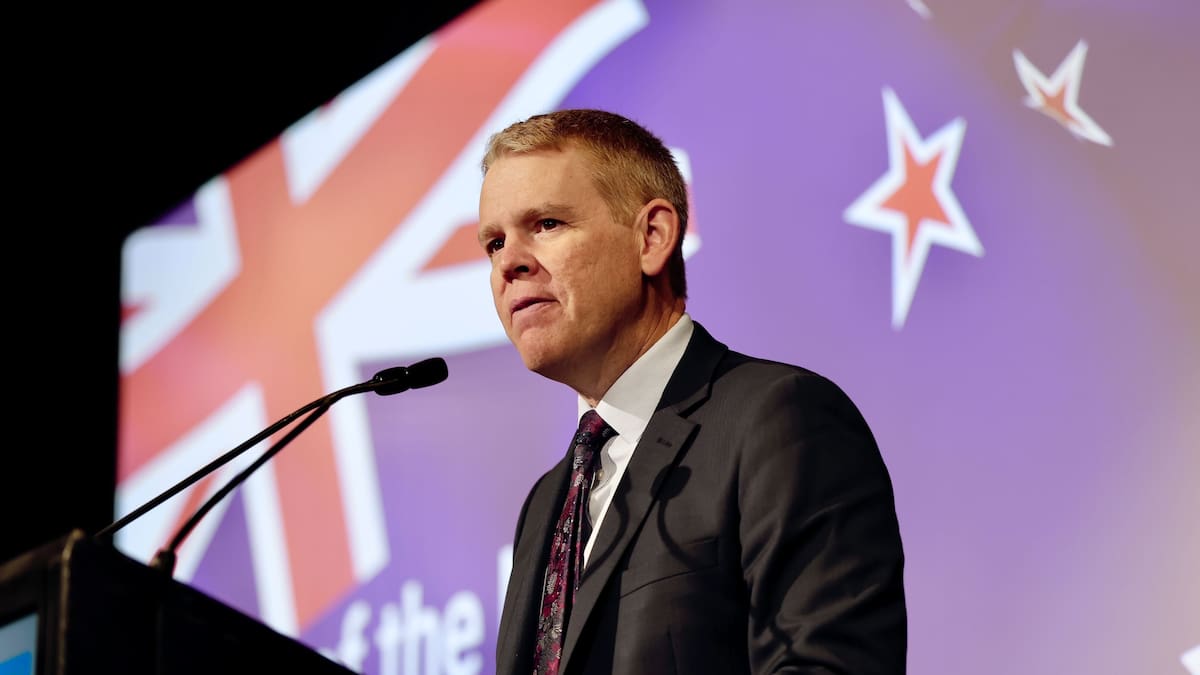Foreign Minister Winston Peters addresses the UN General Assembly. Photo / United Nations
Prime Minister Christopher Luxon today said he hadn’t received feedback from Australia, Britain or Canada regarding New Zealand’s decision as he reiterated the Government’s reasoning.
“Each country makes its own decision, some of our friends in recent months have decided to recognise and others of our friends have not.
“But what is common between us and those parties that have recognised and those that haven’t is that we are all very, very focused on stopping this conflict and that is really the game that we really have to be focused on.
“You cannot recognise a state where a terrorist organisation [Hamas] is the de facto government of Gaza.”
Luxon said New Zealanders weren’t of one mind over recognition, claiming a “large number of Kiwis … don’t have a view one way or another”.
An RNZ-Reid Research poll this month found 42.5% of the 1000 respondents supported recognising Palestine as a state. About 22% opposed recognition while 35.4% said they didn’t know.
Hipkins today reiterated his party’s support for recognition.
“If you look at a map of the world, we are now in a small minority of countries that are not recognising Palestine.
“If we had put conditions on that – many other countries have done that – that would have been acceptable, but not recognising Palestine at all is just an embarrassment for New Zealand.”
Labour leader Chris Hipkins opposes the Government’s position on Palestine. Photo / Mark Mitchell
He confirmed Labour, should it lead the next Government, would recognise statehood “very quickly”.
“As soon as we practically could work through the process of doing that, but it doesn’t need to be a long process in New Zealand’s case, it can simply be inviting the representatives of the Palestinian Authority currently based in Australia to present their credentials in New Zealand.”
Possible coalition partners for Labour, the Green Party and Te Pāti Māori, both support recognition.
Hipkins claimed the previous Labour Government had been discussing recognition in 2023 but it was put on hold when Hamas launched its October 7 attack, which killed 1200 people with a further 251 taken hostage.
About 50 hostages reportedly remain in Hamas’ control. It’s estimated about 60,000 people have died in Israel’s retaliatory offensive in Gaza, a claim Israel disputes.
Cabinet documents released alongside Peters’ speech in New York showed it was officials from his office, not from the Ministry of Foreign Affairs and Trade, who wrote the paper he took to Cabinet. It included two options: not recognising Palestine and recognising Palestine with conditions.
Peters’ office did not ask for the ministry’s advice on the matter, instead requesting officials detail the pros and cons for both options.
“It’s clear the Government had already made the decision well before the announcement at the United Nations last week and they weren’t willing to tell New Zealanders what that was‚” Hipkins said, referencing how Cabinet had agreed to the first option in-principle earlier this month but didn’t release it publicly.
Hipkins also challenged a claim from Peters’ office it had contacted Labour for a briefing before the New York speech to discuss the Government’s position but never heard back.
“My understanding is that someone from Winston Peters’ office ran into my chief of staff in the carpark out the back [of Parliament] and said, ‘Would you be interested in a briefing?’ to which she said, ‘Yes’, to which there was no further follow-up from Winston Peters’ office,” Hipkins said.
Adam Pearse is the Deputy Political Editor and part of the NZ Herald’s Press Gallery team based at Parliament in Wellington. He has worked for NZME since 2018, reporting for the Northern Advocate in Whangārei and the Herald in Auckland.

